The Seward Sharing Table feeds community in Detroit
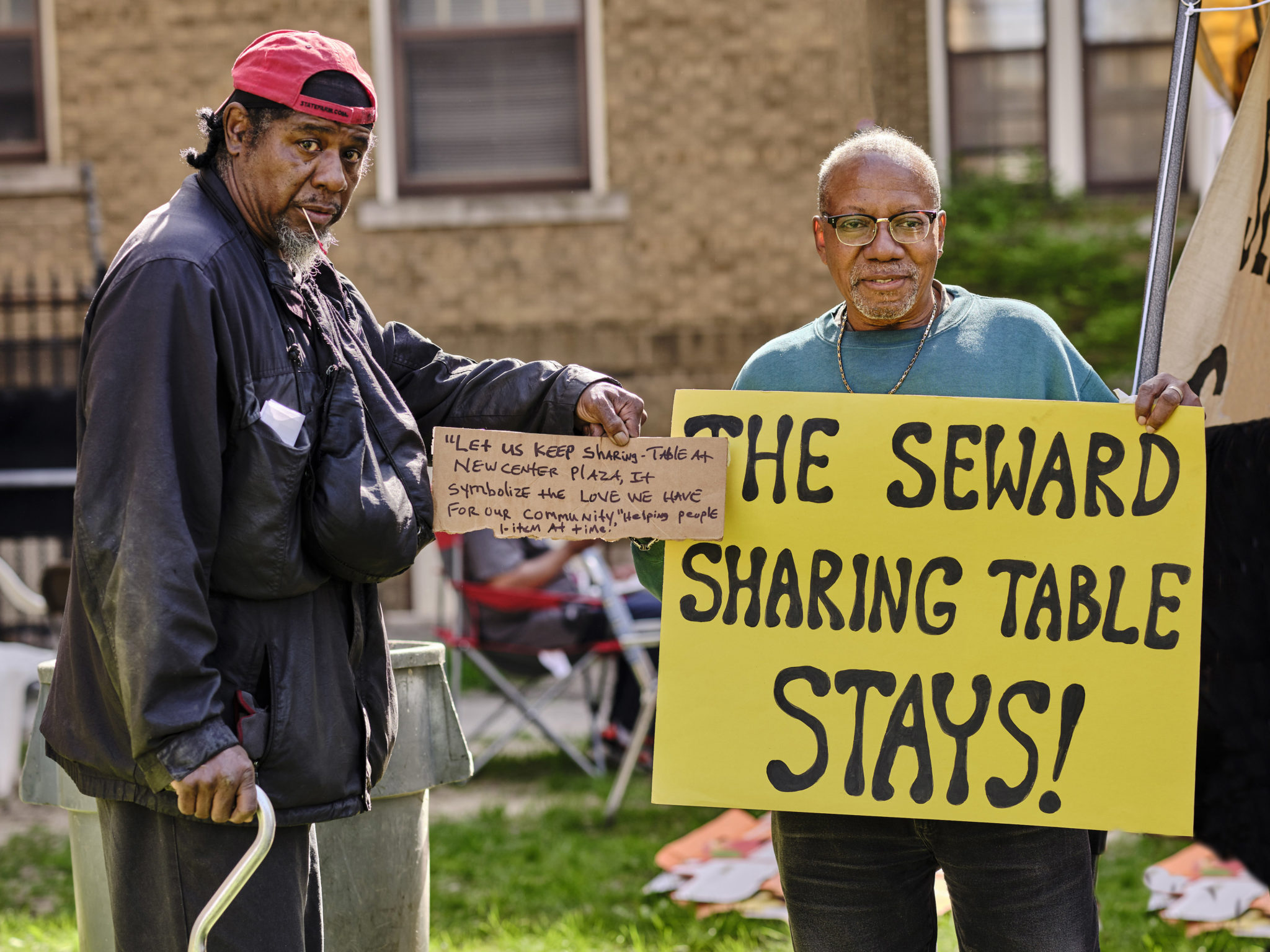
Photos by Joe Vaughn.
At 10 a.m. on a Thursday in May, Detroit’s Seward Sharing Table was completely empty, save for a few boxes wilted by morning dew and light rain from the night before.
An hour later, the tented tables on the lawn of New Center Plaza apartments at Seward Street near Second Avenue were stacked with bags of apples, punnets of strawberries, bread, baked items, canned goods, rice, salad kits, Gatorade, and bottled water — all donated by Metro Food Rescue, to be enjoyed by anyone in need or simply just wanting.
All of it was free — no strings attached, no questions asked.
At 11:30 a.m., a handful of people, mostly regulars from the neighborhood, filled up boxes with fresh produce, having come to rely on it as a consistent resource and essential touchpoint for human connection.
By 6 p.m., the table sat empty again.
Just another day for the Seward Sharing Table, formerly known as the Sharing Table, founded by Detroit musician Kaylan Waterman in the summer of 2020. Waterman, who works as the residency and program director at Detroit’s Assemble Sound, created the table as a way to turn grief into productivity in the wake of George Floyd’s murder. It was also a direct response to the COVID-19 pandemic, which saw thousands of Detroiters out of work, forcing many into food insecurity, some unable to connect with family and friends.
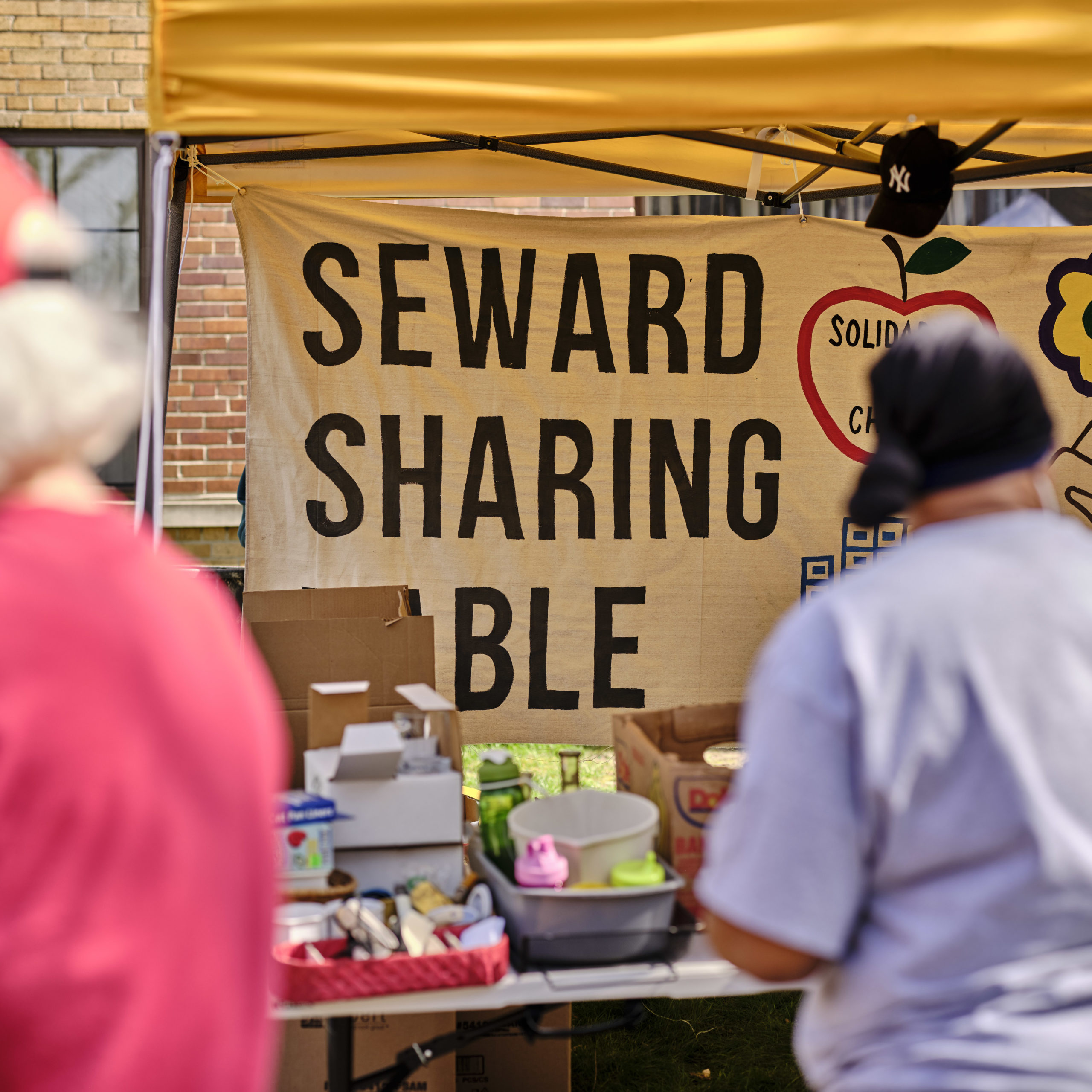
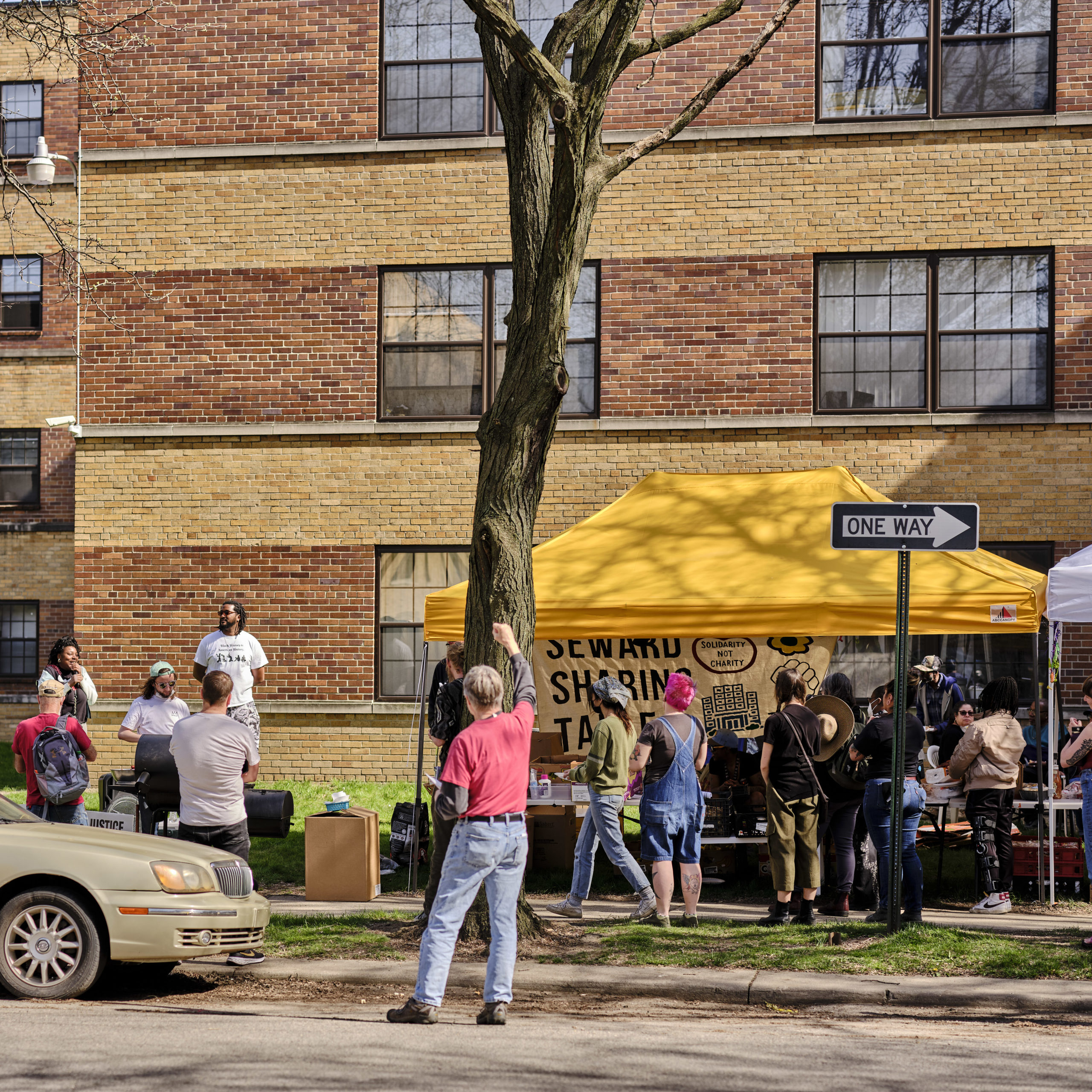
“Everybody actually has the capacity to give,” Waterman says. “What the Sharing Table offers is so many different ways to do that, so many different ways to be in community, whether you’re dropping stuff off, or you’re cooking with someone’s food, or coming to shop the table, or volunteering, or even if you’re just coming to sit to be around other people. Feeling activated and feeling connected to somebody — that is really the whole point.”
The Table started off as a modest card table festooned with handmade signs drawn on computer paper declaring “FREE”. In the beginning, Waterman purchased items to contribute and put a call out for donations on social media. By day five of the Sharing Table, Waterman had procured a donated tent, coolers, a second table, more signs, and more food — a lot more food.
“Everyone has a need,” she says. “The rule at the Table is: If you’re going to give to the Table, then you need to take from the Table, too. You need to interact with the model. It’s not just about somebody who’s on their last leg of unemployment or somebody who hasn’t gotten their stimulus check. It’s about being with each other and taking and giving rather than just as a super uni-directional model.”
Though the Table was largely self-sustainable, it required a lot of Waterman, who lived on a lower floor of the apartment building and had to facilitate donation drop-offs, monitor weather conditions, restock the table, and maintain social media accounts while making sure people had access to the things they needed. And if the table didn’t have something, Waterman would work her magic.
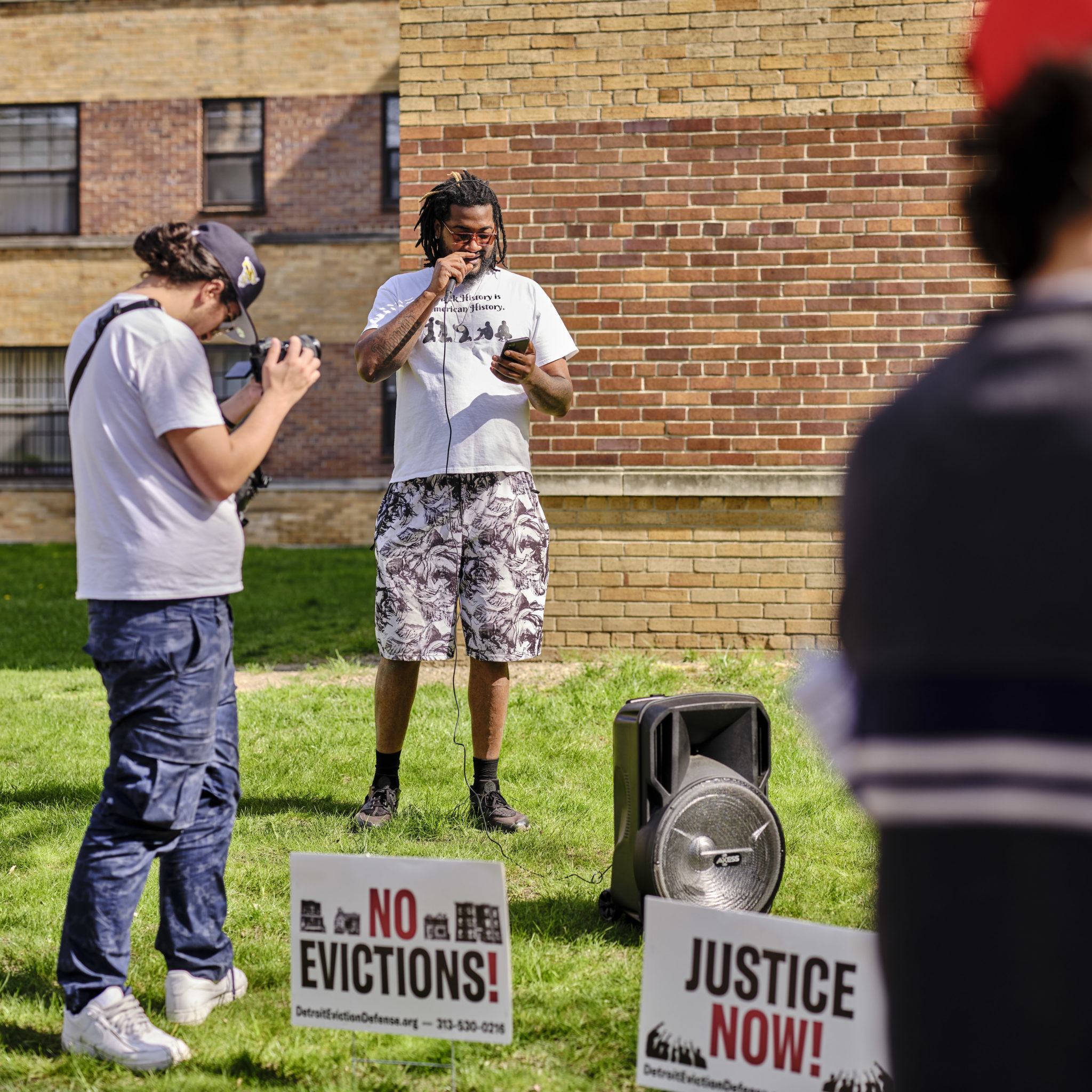
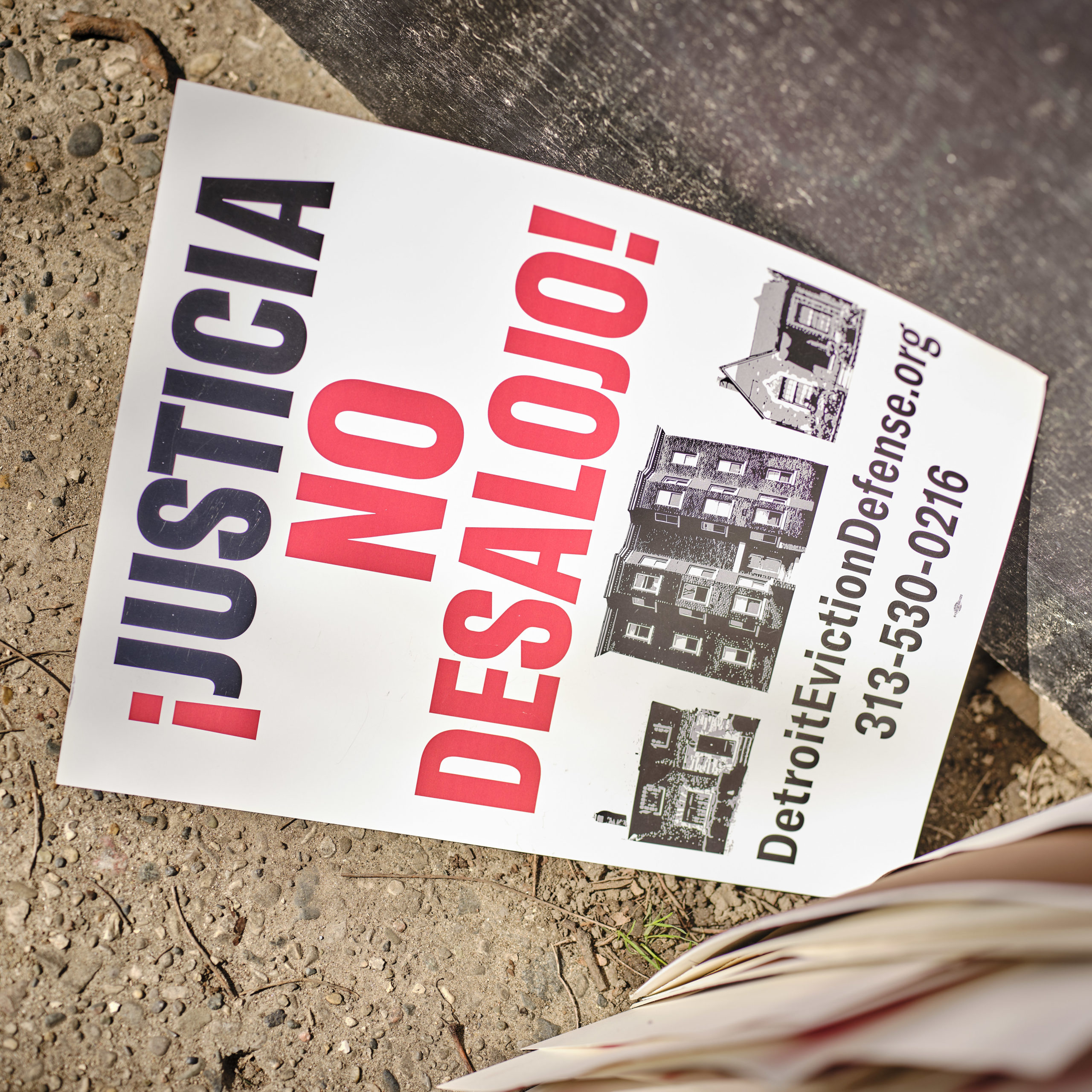
But passion and the compassionate mission behind the Sharing Table wasn’t enough to prevent her from burning out.
“Having thousands of people knowing where I live at any given time was really taxing,” Waterman says. “In 2020, it didn’t matter because I was like, ‘all community all the time.’ But then it grew to the point I had people ringing my bell at 7 a.m. and neighbors complaining about milk being left out. It’s such a beautiful project and model, but my mental health was really suffering.”
Though she moved out of New Center Plaza and off Seward Street, Waterman still partly manages the Sharing Table. When she made the move in the fall of 2021, it wasn’t clear what would happen to what had become an essential community resource, though she had no intention of abandoning the project.
Thankfully, neighbors and tenants took action into their own hands and formed a tenants association, coordinated and led by New Center Plaza resident Steve Rimmer. Formed to protect the rights of tenants against what they deem failing management — New Center Plaza made headlines recently for raising rents while failing to make necessary repairs to an out-of-commission elevator — the association also ensured that the Sharing Table would continue to activate the community.
For Rimmer, who has his own business as a contractor in the area, it’s been an uphill battle.
He says that management requested that the tables be moved off the property after Waterman moved, which was the catalyst for starting a tenants association in the first place.
“After we formed the Tenants Association and got somewhere, the people thought we should bring this back,” Rimmer says of the Sharing Table. “I kind of just hit the ground running trying to get everything going.”
Rimmer says running the Seward Sharing Table is a bit easier than it may have been for Waterman. She did the work of laying the foundation, providing many of the supplies and establishing citywide connections. Now, many people help with the day-to-day operations, which Rimmer likens to a full-time job.
“I feel like once we get everything established, it’ll kind of carry itself with the people here,” he says. “Everybody’s interested and wants to help.”
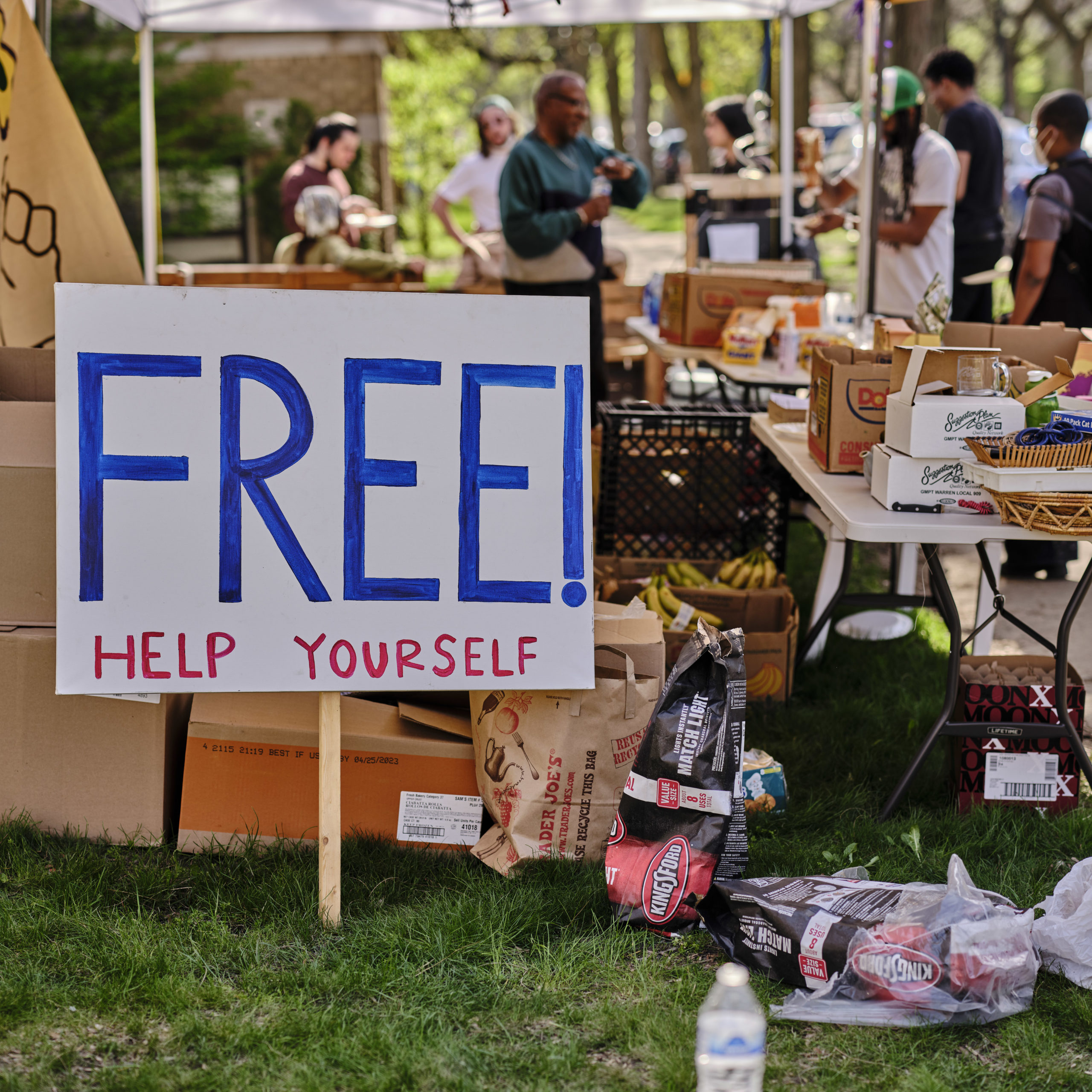
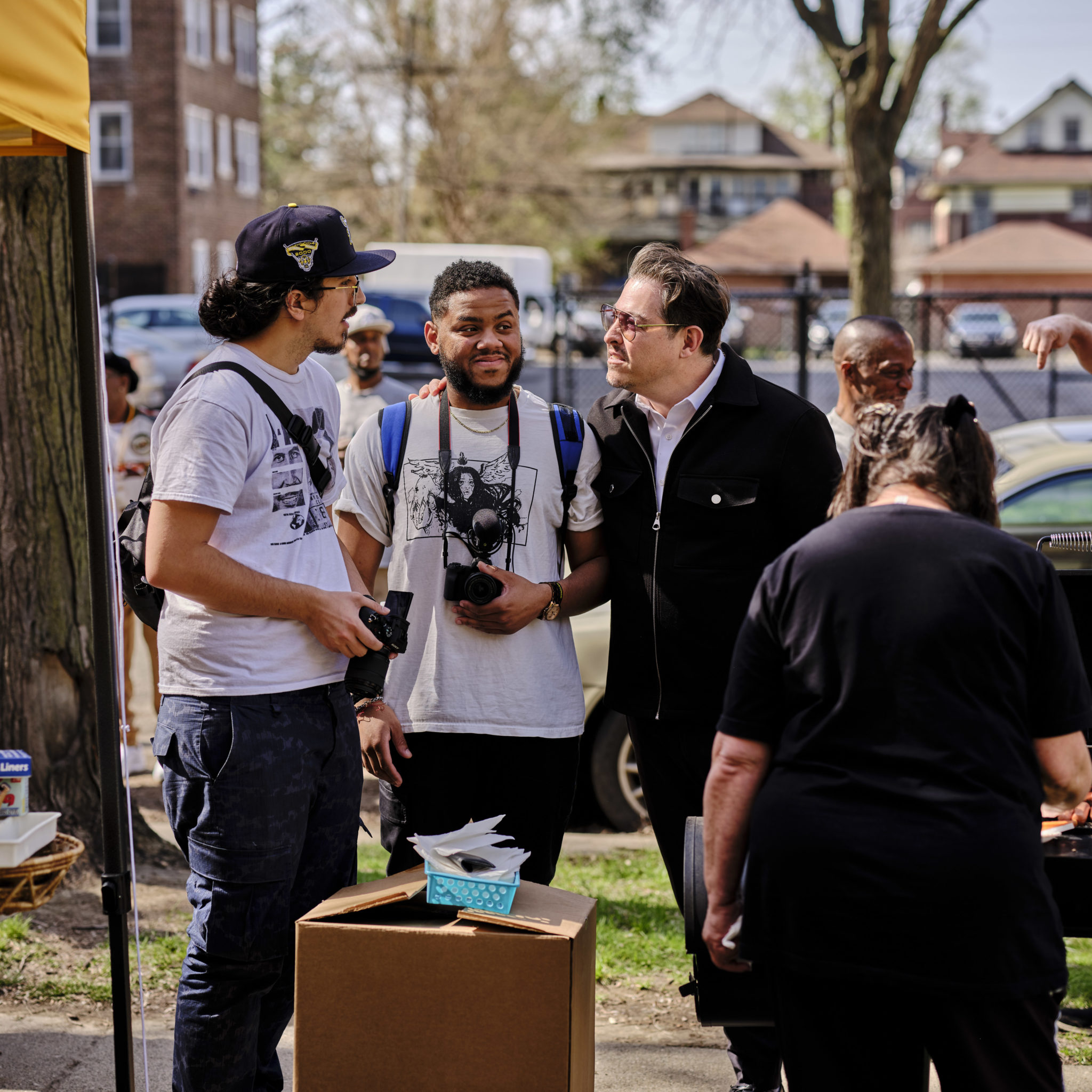
Though Rimmer says he’s been blessed to have never experienced food insecurity in his life, there was a time in the early days of the pandemic where he and his community could not get to the store or access daily essentials, affirming the need for a free food pantry.
“That was probably when it got real for me,” he says. “I never been through a situation like that. And now with inflation, I feel like people are really seeing it more like they did at the start of the pandemic, ‘cause you can’t afford to buy stuff now.
“But I quickly learned that a lot of people around here care about each other, like, for real.”
But not everyone is singing “Kumbaya.” The security company hired by the building’s new management gave Rimmer and the Tenants Association just one day to move the Sharing Table off the property and into an inaccessible gated parking lot, citing neighbor noise complaints, rotting food, and damage to the lawn. This friction between management, tenants, and the Sharing Table is nothing new, though Rimmer says this is the most credible threat to the Table yet.
Rimmer says he and many of his fellow tenants are fed up with the owner and management’s intimidation tactics, negligence, unfulfilled promises, and not-so-subtle attacks on their community offering.
In the spirit of Seward, though, the Tenants Association held a protest in early May to keep the Seward Sharing Table open and accessible to all who need it.
“The goal is to keep everybody fed and keep everybody happy,” Rimmer says. “I just hope we can keep it going.”
For updates, follow the Seward Sharing Table on Instagram @thesewardsharingtable. Donations of produce, canned/dry goods, beverages, meat/poultry, and personal hygiene products are accepted seven days a week at New Center Plaza.
— By Jerilyn Jordan




